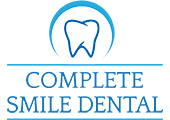When you think of acid reflux, you probably imagine a burning sensation in the chest, bloating, or a sour taste in the mouth. But did you know that it can also quietly damage your teeth, even if you don’t feel any of the usual symptoms?
Many people suffer from what’s called “silent reflux”—a form of acid reflux that doesn’t always present with the typical signs like heartburn. Instead, it sneaks up on you. The acid that travels up from your stomach can reach your mouth and begin to wear away your enamel, little by little, without you even realising it. The result? A smile that slowly loses its shine, strength, and protection.
In fact, your teeth might be one of the first places where the signs of acid reflux show up. And your dentist could be the first person to spot them.

What is acid reflux and how does it affect your teeth?
Acid reflux occurs when stomach acid flows back up into the esophagus, and sometimes all the way to your mouth. This acid is meant to break down food in your stomach, but your teeth were never designed to handle such strong acid exposure.
Tooth enamel, the shiny protective layer covering your teeth, is strong but not invincible. It starts to erode when exposed to pH levels below 5.5, and stomach acid has a pH of about 1.5. Over time, this constant exposure causes the enamel to thin, wear away, and leave your teeth vulnerable to decay and sensitivity.
What makes this more dangerous is that silent reflux can occur at night while you sleep, when saliva (which normally helps neutralise acid) slows down. That gives acid more time to linger on your teeth and cause damage.
Spotting acid reflux in your smile
Acid reflux doesn’t just affect your stomach or throat—it can leave a clear footprint on your teeth. You might notice:
Enamel erosion: Teeth may appear smooth, glossy, or unusually shiny. They may feel more sensitive than usual, especially when eating or drinking something hot, cold, or sweet.
Discolouration: Eroded enamel makes teeth appear yellow or dull, because the inner layer (dentin) shows through.
Increased cavities: Without the enamel’s protection, acids and bacteria can penetrate deeper into your teeth, increasing your risk for decay, even if you brush and floss regularly.
Tooth sensitivity or pain: As enamel wears down, the underlying dentin becomes exposed, leading to increased discomfort.
Thinning or shortening of teeth: Teeth may start to look flatter or more worn down, especially the back molars or the tongue-side surfaces of the upper front teeth.
Bad breath and dry mouth: Acid reflux and dry mouth often go hand in hand, and both can lead to persistent bad breath and a higher risk of dental problems.

Why you should talk to your dentist (even if you don’t feel symptoms)
Most people only associate acid reflux with stomach issues, but your dentist may be the first to notice something’s off. That’s because dentists are trained to spot signs of acid erosion that are not typically caused by sugary diets or poor oral hygiene.
If your dentist notices premature enamel wear in areas that shouldn’t normally be affected, they may suspect reflux, even if you don’t feel any digestive discomfort. This is a critical opportunity to catch and address the problem early, before more irreversible damage is done.
Your dentist may:
✔ Recommend professional fluoride treatments to strengthen remaining enamel
✔ Suggest remineralising toothpaste or products to help protect your teeth
✔ Offer custom-fitted nightguards to reduce damage from nighttime reflux
✔ Coordinate with your GP to help manage your reflux or refer you to a specialist
How you can help protect your smile
While your dentist plays a crucial role in identifying and managing enamel erosion, there are things you can do at home to protect your teeth from acid reflux damage:
- Rinse with water after suspected reflux episodes to help dilute and wash away acid
- Wait at least 30 minutes before brushing after reflux—brushing too soon can scrub softened enamel away
- Avoid frequent snacking on acidic foods and drinks like soda, citrus fruits, and vinegar-based snacks
- Sleep with your head elevated to prevent nighttime reflux from reaching your mouth
- Use high-fluoride toothpaste or mouth rinses to support your enamel
- Consider using a tooth mousse (containing CPP-ACP) to help remineralise and strengthen enamel
- Focus on a balanced diet and stay hydrated to support healthy saliva flow and digestion

Don’t let acid reflux degrade your smile
More than just for biting and chewing, your teeth are vital indicators of your overall health. If acid reflux is silently weakening your enamel, you could be on the path to long-term dental issues without even knowing it. The good news? You can do something about it.
If you’ve noticed sensitive teeth, yellowing, or wear that doesn’t make sense—or even if you’ve already been diagnosed with reflux—don’t wait. Book an appointment with your dentist and have a conversation. They can assess the state of your enamel, provide protection strategies, and guide you toward a healthier, longer-lasting smile.
Your smile matters. So does your overall health. Speak with your dentist and GP today—and stay ahead of acid reflux’s hidden effects.


